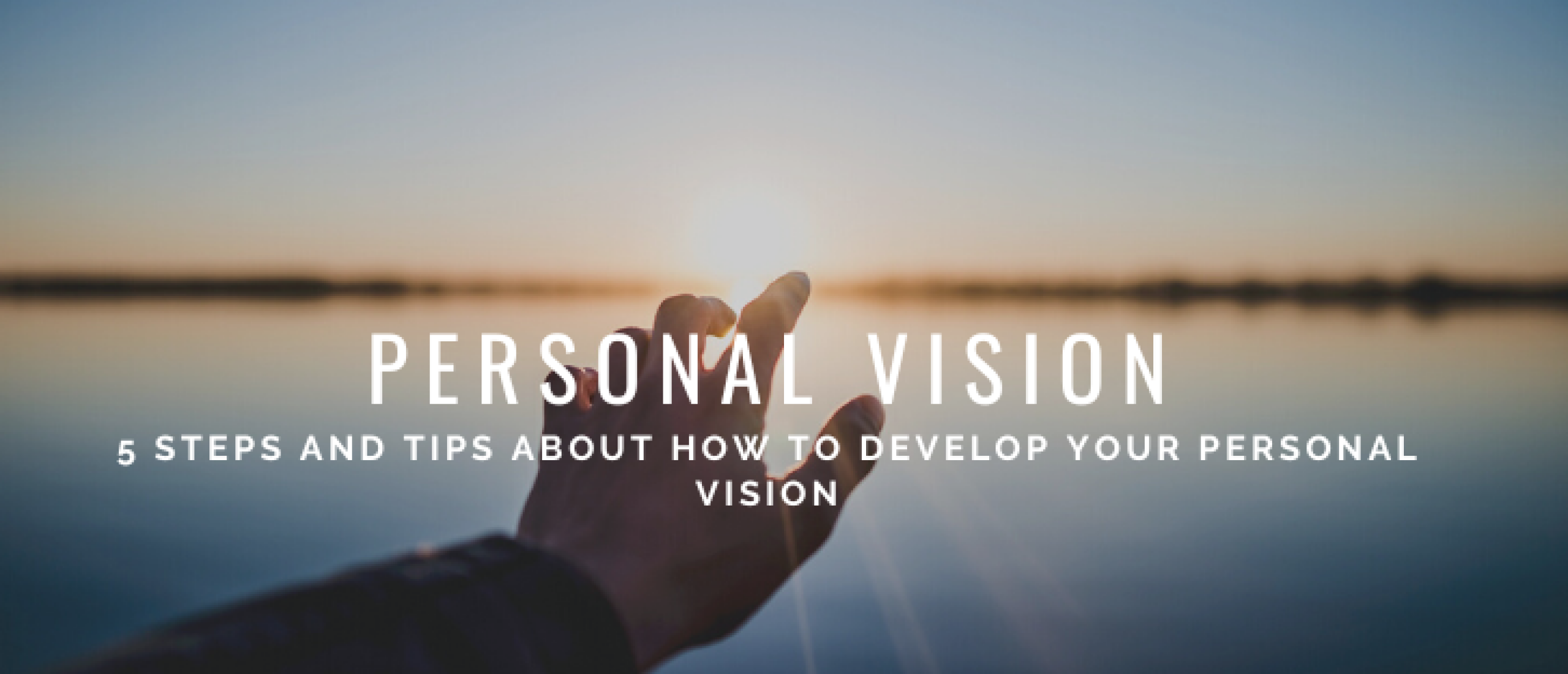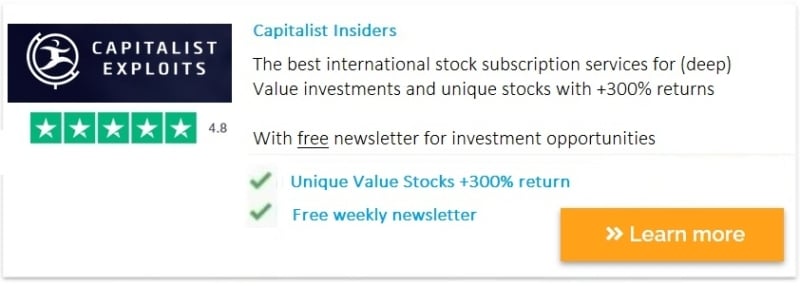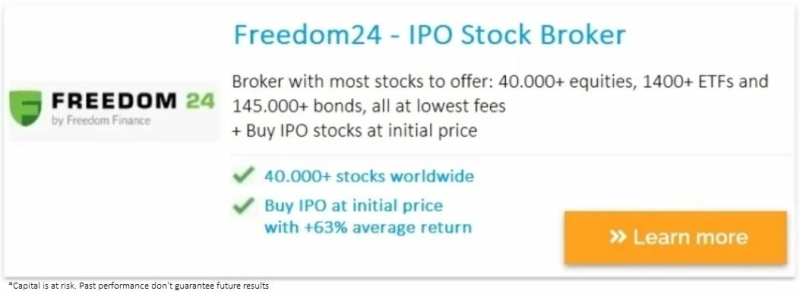Let's talk about developing personal vision. As a Happy Investor, we believe that the true purpose of life is to become happier. However, being happy is not a constant, but a journey. By working toward a desired direction in our lives, we experience fulfillment and happiness. We feel like we are moving forward.
Developing a personal vision is a crucial prerequisite. Many of us don't know what we really stand for or what we really want in life. If you don't move in a certain direction you may end up running in circles. This gives the feeling as if you are not moving forward. You are standing still. And this can make us unhappy.
In this article we will take you through the process of developing a personal vision. Using 5 steps and additional tips you will learn to develop your own vision in life.
On to sustainable success!
What is a Personal Vision?

Your personal vision is the way you intend to live. It impacts many facets of life, including mental, emotional, social, spiritual, physical, and professional aspects.
A concise personal vision statement combines your abilities, interests, personality, values, ambitions, skills/experience, background, and goals into one statement.
A personal vision helps you make the best decisions possible. It encourages you to think long-term and maintain balance in your life.
Having a clear personal vision gives your life meaning and it encourages you to consider what you can do to achieve your goals.
Let's go over some important tips on personal vision development.
Begin with the end in mind
If you read Stephen Covey’s bestseller, The 7 Habits of Highly Effective People, he emphasizes the importance of having a personal vision.
Why is that? Because everything is created twice: we first make a mental creation, and then we make a physical creation.
In simple words, this habit is about imagination, the ability to see with our minds what we cannot see with our eyes right now. Nevertheless, when we can see it with our minds, we only need some physical effort to make it happen.
Why should you live your life according to your personal vision?
Developing a written personal vision will help you recognize your values, goals, and ambitions. After you've established these, you'll be able to match your professional life with your personal values.
If you are unsure about your values, you will always be living according to someone else's vision. You will find jobs that you don't like or do things that don't align with your values. Instead, choose to do what you love and what has meaning for you.
Living in alignment with your core values makes it easier for you to find happiness, peace of mind, and success in your life. That is because you live genuinely without confusion, guilt, or shame.
Having a clear vision will allow you to find the easiest, most efficient way to achieve your goals.
Think about someone who drives to get somewhere but doesn't know the direction. They may get lost or lose a lot of time and resources trying to get to their destination. Something similar happens when you don't develop your personal vision.
We need direction to move forward. We don't know the exact end station. Nor is it relevant. Wants and needs change over time. As it does with the desire for financial freedom. But by moving in at least one direction, you are behind the wheel yourself.
Personal Vision Development: 5 Steps and Tips
There is no one-size-fits-all approach to writing a personal vision statement. However, here are some ideas about what you can do to create your own.
1. Before starting
The general rule is simple. You should consider who you are, what means most to you, and your values, aspirations, and desires, among other things.
Don't think about limits. Avoid worrying about obstacles while writing your vision statement. Don't think about where you are in your professional life right now, how much money you have, the skills you have or lack, or your social circles.
Your personal vision is not a plan. It will help you create a plan, but it is not the plan itself. Your personal vision is only about what you want to achieve. You will figure it out with time.
Tip: Focus on what really matters. Think love, relationships, personal development, and fulfillment in work you love.
2. Know your strengths
Strengths, unlike skills and "gifts," are positive attributes that you can develop in yourself and inspire in others. They can be tools to help you get where you want to be.
Some examples include patience, generosity, quick thinking, authenticity, innovation, self-discipline, responsibility, adaptability, and being energetic or passionate.
List some of your strengths and ask someone who knows you pretty well to have a broad vision.
3. Identify your core values
Your core values are the principles that guide your actions throughout your life. They reveal what is significant or genuinely meaningful to you. Your values embody your life's purpose and who you aspire to become.
If you are unsure about your values, ask yourself what you would like the future to be. Do you want to be full of "wealth" and prosperity? Do you want "health"? Maybe you value "peacefulness" more, or you feel like you need "freedom."
Then, ask yourself what you admire about other people. For example, maybe you like people who are brave, optimistic, kind, calm, organized, frugal, effective, diligent, cooperative, etc. Think also about what upsets you about others, and that will also give you some ideas about what you value the most.
These are some examples of core values. Choose those that you consider the most important.
4. Choose what you want to do
This step is about finding a career that aligns with your values and strengths.
Finding something you love to do and getting money for it may be hard. In this case, it’s helpful to understand the concept of ikigai.
Ikigai is a Japanese term that translates to "reason for being." In simple words, your ikigai is your life purpose. It's what makes you happy and gives you a sense of purpose. Your ikigai is what motivates you to get out of bed every morning.
Frequently, people use this concept to find their dream careers. Your ikigai encompasses what you love, what you are good at, what you get paid for, and what the world needs. If you find something that perfectly fits all of those categories, you've found your ikigai.
What you love
This category encompasses the activities or experiences that offer you the greatest joy, satisfaction, and fulfilment. Ask yourself what you enjoy doing and what makes you happy.
What you are good at
Think about the unique skills and talents you possess. What are you particularly good at? Strengths are a building block for personal vision development.
What you get paid for
It's wonderful that you have a passion that you're also good at. But can you get paid for it? After all, you need money as long as you are not yet financially free 😉.
What the world needs
This dimension of the ikigai diagram refers to what society needs or what you can do to make a difference.
5. Write your personal vision statement
Once you are clear on what you want to do, you can write and develop your personal vision. Creating a statement that reflects your vision is a great way to make it very clear and remind you about it.
A common way to write a personal vision statement is to break it into two parts: the first one states the job you want to have or a field you like, and the second one states why you want that job.
For example, “I want to be a lawyer to support people who were victims of domestic violence. I value justice and empathy above all.”
Do something about it
Now you know your personal vision! What’s next?
It's easy to feel overwhelmed because you may think you are very far from the final destination. But don't worry; knowing what you want is the first step towards achieving that goal.
Create a plan that will guide you towards achieving that vision. Write down all the things you need to get to where you want to be: resources, education, contacts, etc.
Then, write steps to achieve it. Create yearly, monthly, weekly, and daily goals. It will help you to keep on track and hold yourself accountable.
Take small steps and be perseverant. It is about the journey, not the destination!
As long as you follow these steps and tips, you will develop a personal vision that suits you. You will have direction for your life. You determine. You direct. And this will enrich your life with more joy and fulfillment.









